J.A. Seazer
Nascimento : 1948-10-06, Miyazaki Prefecture, Japan
História
Takaaki Terahara (寺原 孝明 Terahara Takaaki), known professionally as Julius Arnest "J.A." Caesar (born 6 October 1948), is a Japanese film and theater music composer. Seazer enjoyed popularity among students in Japan during the 1960s, and worked closely with director Shuji Terayama and his theater Tenjo Sajiki until Terayama's death (besides incidental music, he wrote a few full-fledged rock operas for Tenjo Sajiki, including Shintokumaru). He is a member of the theatrical company Experimental Laboratory of Theatre ◎ Universal Gravitation (演劇実験室◎万有引力 Engeki-Jikkenshitsu Ban'yū Inryoku), better known as just Ban'yū Inryoku. He gained more mainstream attention for his songs composed for the anime Revolutionary Girl Utena, and has also composed the score to the animated film adaptation of Suehiro Maruo's manga Mr. Arashi's Amazing Freak Show (also known as Midori or Shojo-tsubaki).
-- Wikipedia

Himself
The documentary to find the "true Shuji Terayama".

Himself
A documentary about Morisaki Henrik, AKA Terayama Henrik, who became Terayama Shuji's adopted little brother after his death. Henrik continued Terayama's legacy in his own way after the passing of his collaborator and brother.

Music
Based on Minoru Nagao's 1969 experimental book Illustrator: Basara ningen.

Music
A bus full of cult members gets stuck in snow. The cult has to stay in a mountain hotel. Strange things start to happen...
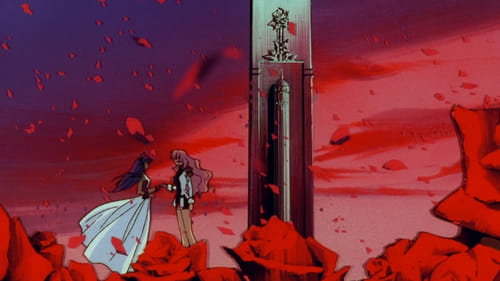
Original Music Composer
Utena é uma garota que, desde a tragédia que levou a morte de seus pais, deseja se tornar um príncipe, assim como o qual lhe ajudou a seguir em frente após a tragédia. Por isso, ela sempre se veste como um garoto, tentando agir como um príncipe. Ela vive uma vida comum, estudando em um colégio. Mas sua vida muda quando ela encontra um anel dentro de uma rosa e acaba se complicando com o conselho estudantil do colégio, descobrindo os segredos por traz da Noiva da Rosa. Agora ela deve confrontar esses segredos e descobrir mais sobre seu passado e, quem sabe, poderá se tornar um príncipe. Mas qual é a verdade por trás disso tudo?
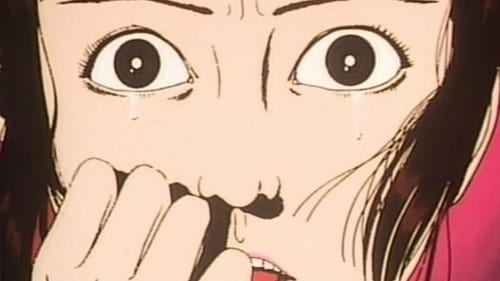
Original Music Composer
Uma garotinha vendedora de flores perde a mãe e se encontra perdida no mundo, até que ela recebe um convite para participar de um circo, mas ela não esperava que essa fosse ser a pior escolha de sua vida.
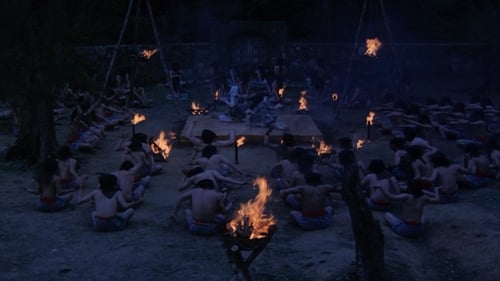
Original Music Composer
A surreal, isolated village sees its inhabitants gradually leave behind their mutual traditions and superstitions as they leave for the city. Among them are two cousins who love each other and who get into a quarrel with other villagers.

Music
This is Shuji Terayama memorial performance from 1983.
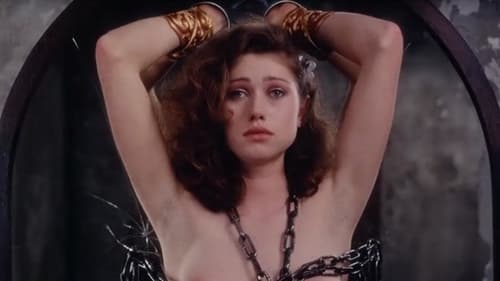
Music
A girl named O loves a rich, and much older man. She is subjected to a variety of humiliating experiences to prove her unconditional obedience to him in a chinese brothel. A poor boy sees her and falls in love with her. To get the money needed to sleep with her, he takes part in rebellious acts.

Music
Akira is haunted by a "bouncing ball" song that he remembers his mother singing when he was a small child, and now on the verge of a sexually active adulthood, he wants to find the origins of the song. The young man ostensibly wanders into a time-warp in which aspects from his childhood and adulthood mix together. In this never-never land he comes across a beautiful woman/witch who is lost inside the labyrinth of her mansion, just as the young man is lost in the labyrinth of time — and on some levels, perhaps the labyrinth of his subconscious.

Music
Stage performance by the Tenjo Sajiki troupe.

Music
Shuji Terayama and J.A.Seazer's phantasmagoric folk-psych-symph-prog-rock opera. Historical Tenjo Sajiki performance from 1978.
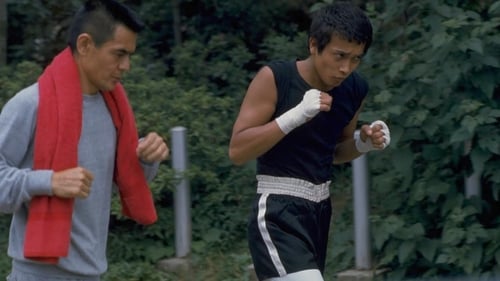
Original Music Composer
In the midst of a match, a successful boxer - Hayato, has had enough of the sport. He lets himself get knocked, quits boxing, leaving his wife and start living alone with his mangy dog. One day a young mediocre boxer knocks at the door and wants to be Hayatos apprentice.
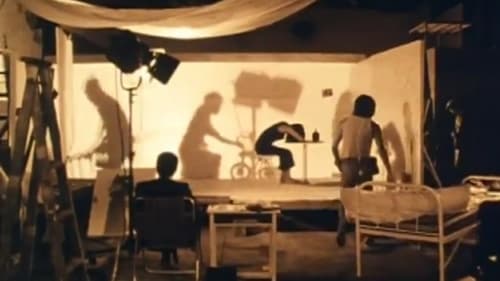
Music
As a family goes on with their day, the shadows on their walls lead a completely different life.

Music
Visions of characters by the seaside from one's memory are erased by the filmmaker's hand.

Music
Using bluescreen video techniques, Terayama playfully—and with a silent film theatricality—posits a series of postmodern vignettes featuring realities-within-realities as his protagonist attempts some kind of relationship with a nude woman on the screen-within-the-screen. In his struggles to “free” her, he exposes the absurd flimsiness, deceptiveness and mutability of both the cinema experience and our human dimension.

Music
In this Borgesian satire on knowledge and technology, bibliophilic desire leads to the construction of a pedal-powered reading machine. Resembling a combination of gymnastic contraption, printing press and early cinematic apparatus, the machine’s purpose remains ambiguous. And like this machine, Terayama’s film connects his work in poetry, motion picture and graphic design by weaving together printed and projected, still and moving images.

Music
An experimental short featuring people and nails.

Music
A group of young men go treasure hunting in the sea.
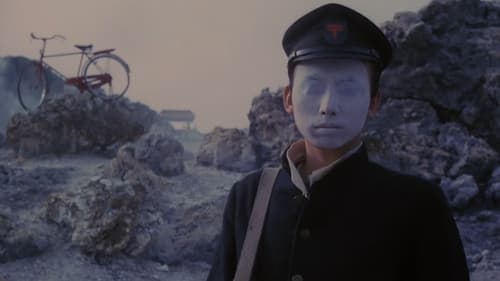
Original Music Composer
A young boys' coming of age tale set in a strange, carnivalesque village becomes the recreation of a memory that the director has twenty years later.

Tengu Kurama
A young boys' coming of age tale set in a strange, carnivalesque village becomes the recreation of a memory that the director has twenty years later.

Music
Originally made for the 100 Feet Film Festival hosted by Image Forum. However, to test the limits, Terayama Shūji willfully made use of 3 projectors to project 300 feet of film at the same time.

Music
An insight into the lecture "How to rule the others" given by Mr. Slobodan Cirkovic 'Roko', a well-known Yugoslav experimentalist on telepathy and hypnosis.
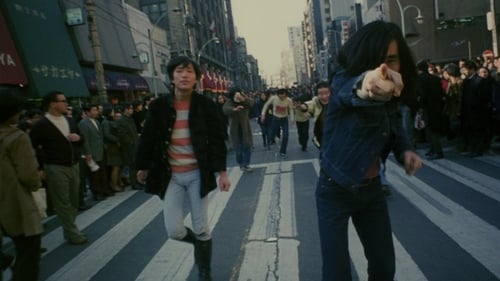
Longhaired Poet
Alternando entre um estudo psicológico sobre a alienação e perda de direitos, e uma chamada urgente pela militância e atuação sociopolítica revolucionária da geração do final dos anos 60, a delirante montagem de Terayma de imagens fragmentadas, não sequenciais e desbalanceadas reflete a incerteza e o caos interior de um empobrecido - e apropriadamente anônimo - jovem, e de sua família igualmente disfuncional: o pai desempregado e voyeur, uma avó deliberadamente mentirosa, e uma irmã cuja ligação afetiva com seu coelho de pelúcia transformou-se numa obsessão bestial.

Music
Alternando entre um estudo psicológico sobre a alienação e perda de direitos, e uma chamada urgente pela militância e atuação sociopolítica revolucionária da geração do final dos anos 60, a delirante montagem de Terayma de imagens fragmentadas, não sequenciais e desbalanceadas reflete a incerteza e o caos interior de um empobrecido - e apropriadamente anônimo - jovem, e de sua família igualmente disfuncional: o pai desempregado e voyeur, uma avó deliberadamente mentirosa, e uma irmã cuja ligação afetiva com seu coelho de pelúcia transformou-se numa obsessão bestial.
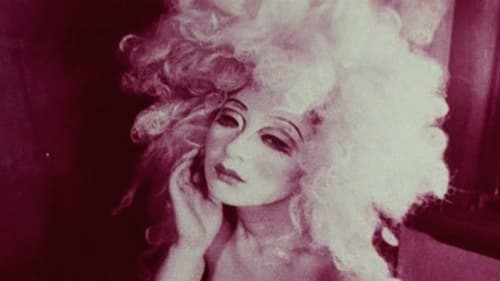
Music
Um grupo de crianças vestidas com uniformes militares revoltam-se contra os pais e começam a caçar e a matar adultos. Um grupo de meninas despem-se enquanto cantam: “Quando eu crescer e me tornar numa prostituta…” Silhuetas vão dar à praia e dançam nuas ouvindo o bater das ondas. Duas crianças vestidas de ditadores fazem um jogo interminável de Pedra, Papel ou Tesoura até só um resistir. Crianças privam relações sexuais com mulheres adultas pintadas de branco, enquanto que outras arrastam corpos crescidos pela terra anarquicamente deserta. Tudo isto ao som de Wagner, Stravinski e Tchaikovski.

Original Music Composer
Finished shooting in 1962, the movie’s cast was almost the same as its crew. With a bunch of experimental symbols such as skinny human body, clock and goat flow from one scene to another, the film explores the question of whether a man is a prisoner of time.











